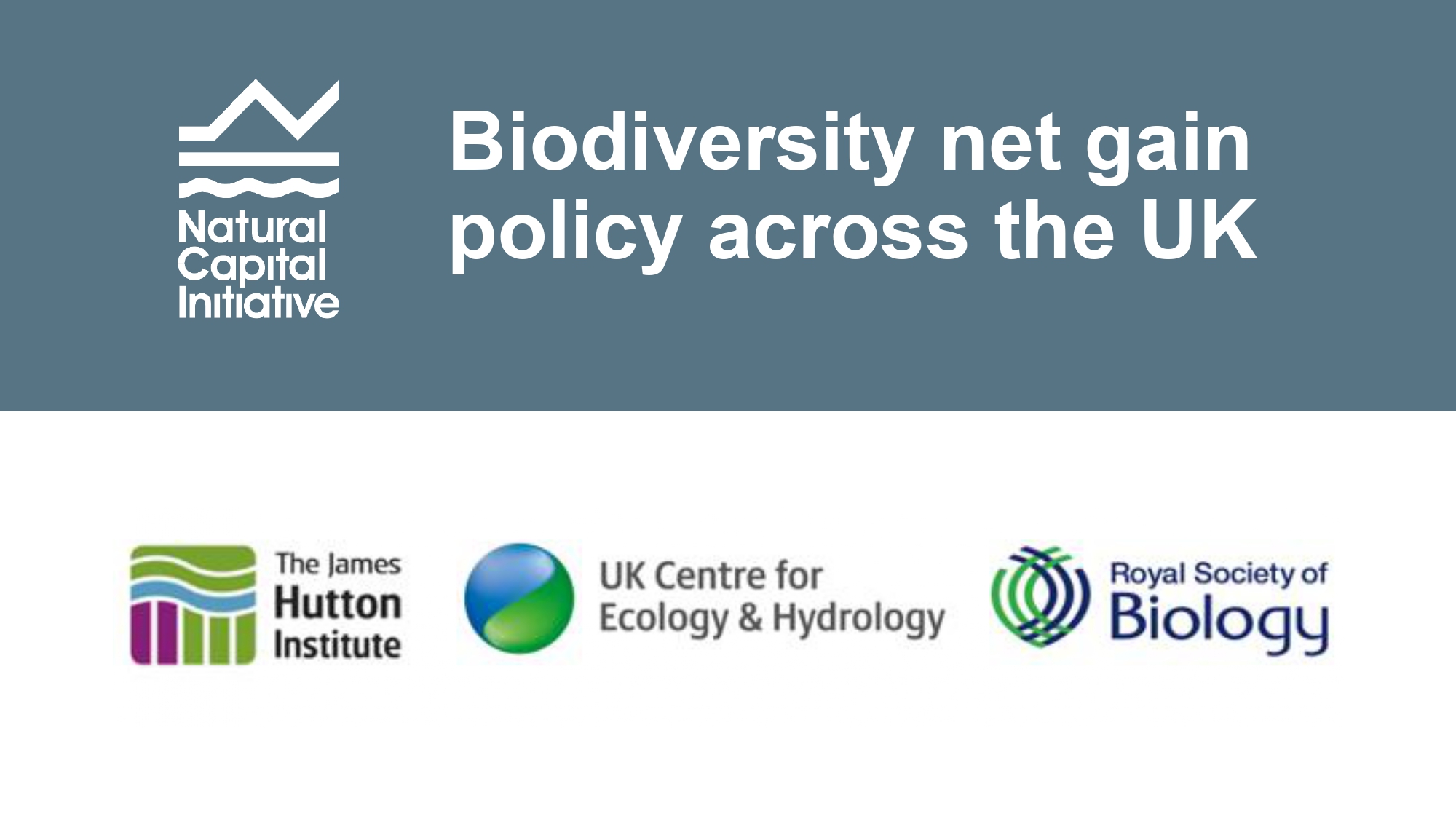News
RSB hosts first NCI event on Biodiversity Net Gain
- Details
- 04 October 2023
RSB hosted the first event of a new series from the Natural Capital Initiative (NCI), which is a partnership between three leading scientific organisations in the UK: the Royal Society of Biology, the UK Centre for Ecology and Hydrology and the James Hutton Institute.

The NCI mission is to support the decision-making that results in the sustainable management of the UK’s natural capital and the online talk explored biodiversity policies in England and Scotland.
With over 13 years’ experience in professional ecological consultancy, Amy Wright, principle ecologist at Native Ecology, introduced the biodiversity net gain (BNG) framework developed in England.
She presented the concept of BNG by defining it as a policy approach to land development that leaves biodiversity in a measurably better state than before the development took place, and that the UK currently manages BNG through the Environment Bill, with further legislation expected soon.
Ms Wright discussed some of the requirements for BNG, including planning applications must show that developers will replace the site’s biodiversity value, as well as an additional 10% gain on top, and any habitat that is secured by BNG must be maintained for 30 years.
Simon Brooks, strategic planning manager for NatureScot, then spoke about the approach set out in the Scottish Government policy, known as the National Planning Framework (NPF). He discussed the NPF policies that involve tackling biodiversity and the climate and nature crises.
Mr Brooks emphasised that when developing nature guidance, it must have a nature rich approach by considering biodiversity from the outset, integrating nature to deliver multiple benefits, and ensuring that long-term nature enhancement is secured.
To find more information on enhancing natural capital for the benefit of people and nature, visit the NCI website, and the recording from this event will be available on the RSB YouTube Channel in due course.

